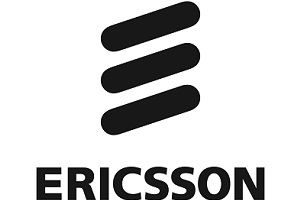Ericsson is set to receive a five-year funding from Germany’s Ministry of Economic Affairs and Climate Action for its European Microelectronics and Communication Technologies for 6G (EMCT) project. This project aims to drive semiconductor technology advancements and foundation needed to develop energy-efficient and sustainable microelectronics and communication technologies for 6G Massive MIMO radios together with partners in Europe.
Ericsson Antenna Technology Germany GmbH will lead the development of this project at the Rosenheim R&D site in Germany.
The project is part of European Union’s Important Project of Common European Interest on Microelectronics and Communication Technologies (IPCEI-ME/CT) initiative. This initiative was jointly prepared by 14 EU member states and will provide up to EUR 8.1 billion in public funding to support research and development projects across the whole ecosystem of microelectronics and communication technologies from materials and tools to the chip design and manufacturing processes. This partner collaboration will contribute to an ecosystem and evolution of semiconductor technologies in Europe.
The IPCEI procedures allow for public-sector funding to be granted at the national level for projects that significantly contribute to the growth and competitiveness of the European industrial sector. Ericsson is among 56 companies that will undertake 68 projects in total as part of IPCEI-ME/CT.
The IPCEI ME/CT projects also aim to enable digital and green transformation by creating new microelectronics and communication solutions and developing energy-efficient and resource-saving electronic systems and manufacturing methods.
Ericsson’s project scope is to extend the current radio microelectronics development by establishing early technology development of 6G radio microelectronics in co-operation with European partners. Focus is on early technology development off 6G Massive MIMO radios, which will expand European semiconductor ecosystem and help complete a European value chain in this vital field of European interest.
Freddie Sodergren, head of technology and strategy, Ericsson Networks, says, “The introduction of the 5G mobile communications standard already opened up a multitude of new applications beyond voice and mobile data. Upcoming 6G mobile networks need to meet the ever-increasing demand for communication in the areas of human-to-human, human-to-machine, and machine-to-machine in a highly energy-efficient way.”
“We’re excited to gain this opportunity, which allows us to pave the way for developing world-leading, highly efficient Massive MIMO radios by completing the value chain in microelectronics and communication technologies,” adds Sodergren. “Ericsson’s R&D site in Rosenheim plays an important role in building competencies in microelectronics for Massive MIMO radios and the semiconductor industry in Germany.”
Federal minister Robert Habeck, “As a key technology, microelectronics plays a central role in climate protection, energy efficiency and economic growth. Independent access to microelectronics components is more important than ever for the transformation of the economy and for the security of supply of Germany and Europe.”
Robert Habeck, vice chancellor of Germany and Federal Minister for Economic Affairs and Climate Action hosted the official Letter of Intent ceremony in Berlin where participating companies were invited to present their projects. Ericsson was represented by Markus Feld, managing director of Ericsson Antenna Technology Germany GmbH.
Comment on this article below or via Twitter: @VanillaPlus OR @jcvplus






